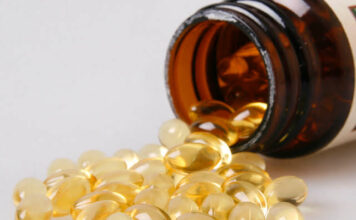Nwabumma Asouzu, a nutrition expert and Registered Dietician-Nutritionist at Alex Ekwueme Federal University Teaching Hospital, emphasizes that vitamin D supplementation is necessary for babies, even if they are exclusively breastfed, due to the crucial role vitamin D plays in maintaining blood calcium and bone health.
According to Asouzu, the amount of vitamin D present in breast milk is insufficient to support healthy bone development in babies without additional supplementation.
Babies rely on their mothers for essential vitamin D and calcium, which are vital for bone health, and the World Health Organization identifies the main sources of vitamin D for infants as vitamin D obtained from the mother during pregnancy and after birth through diet and supplements.
“Vitamin D is required to maintain blood calcium and bone health. The consequences of vitamin D deficiency in infancy classically manifest as soft malformed bones (rickets), seizures due to low blood calcium, and difficulty breathing
“At the time of diagnosis, infants with vitamin D deficiency rickets have very low serum 25(OH)D concentration, below 25 nmol/L and most have not received vitamin D supplementation.
“Vitamin D deficiency is also thought to increase the risk of other diseases including type 1 diabetes later in childhood”, the WHO stated.
According to Asouzu, vitamin D is not only essential for the baby’s bone health but also plays a vital role in the long-term bone health of both the mother and the child, as reported by Wakadaily.
She elaborated, “It was previously thought we obtained sufficient vitamin D from the sun. We now know that for many people, this is insufficient and there are few dietary sources of vitamin D.
” Calcium is much more easily obtained from the diet, so deficiency should be less of a problem.
“However, not all of the population consumes adequate amounts of calcium.
“With the emphasis on exclusive breastfeeding for the first six months of life and because of the low levels of vitamin D in breast milk, it is imperative that pregnant and breastfeeding women are made aware of these possible deficiencies, their impact, and what actions they can take.
“Human milk contains little vitamin D (approximately 20 IU/litre) and so lactating mothers with low vitamin D levels will provide their babies with even less than mothers who are sufficient in vitamin D.”
The dietician warned that a deficiency in vitamin D would not only affect the baby’s vitamin D levels but also have a lasting impact on their bone health during childhood and beyond.
She emphasized that vitamin D is essential for building a strong foundation for bone health during childhood and adolescence, setting the stage for a healthy future.
“After birth, the baby’s bone health will be affected by the amount of vitamin D and calcium in the mother’s breast milk, the availability of a vitamin D supplement, and the quality of the weaning diet.
“During lactation, it is recommended that the mother’s calcium intakes are increased to accommodate the needs of the infant as well as those of the mother.
” All these factors are important not only in infancy but because they influence future bone health in childhood and adulthood, including protection against osteoporosis.
” It is important for health professionals and public health specialists to be aware of these issues and to ensure mothers receive the information they need to help them choose a healthy diet”, she mentioned.
Asouzu added that available evidence proves that vitamin D deficiency in mothers during late pregnancy was associated with a deficit in the accrual of bone minerals in their children.
” During pregnancy, vitamin D is essential to sustain increased calcium absorption and utilisation.
“Along with an adequate vitamin D status, adequate calcium intake influences peak bone mass. The foetus accumulates about 30 g of calcium in utero from its mother and 80 percent of this transfer occurs in the last trimester of pregnancy.
“Supplying the foetus with sufficient calcium depends on many factors, including maternal calcium intake and vitamin D status.”
The dietician highlighted that calcium, phosphorus, and magnesium are essential minerals for bone formation, with infants being born with significant amounts of these minerals (98% calcium, 80% phosphorus, and 60% magnesium).
She emphasized the importance of educating women about the benefits of a healthy diet during pregnancy and providing practical advice on healthy eating.
A 2019 study published in BMC Journal found that children under four years old typically consume less than a third of the recommended amount of vitamin D from food sources, and supplementation rates are low among breastfeeding mothers and children under five.
The researchers warned that children under five are at a higher risk of vitamin D deficiency due to a lack of awareness among parents about the importance of vitamin D dietary requirements,
supplementation, and fortified foods. They stressed the need for improved promotion of vitamin D information to parents, given the significant implications of deficiency.
